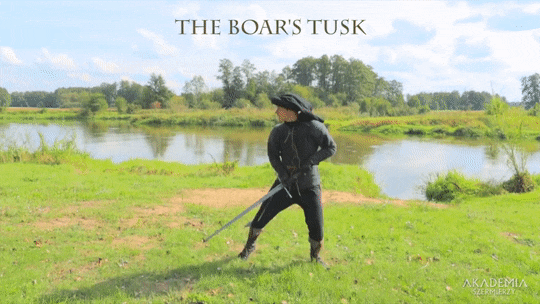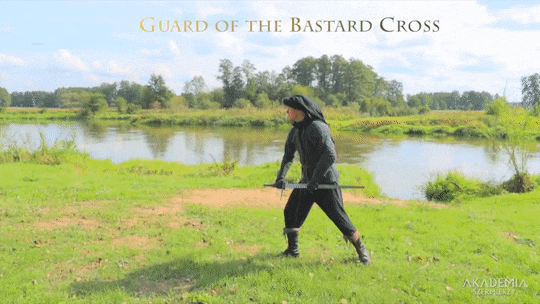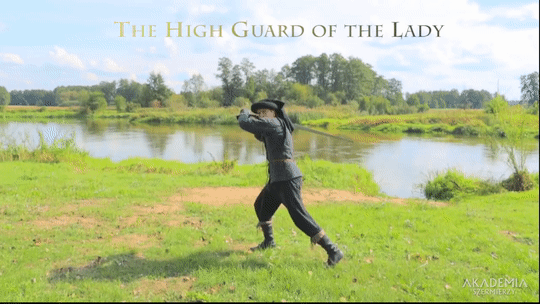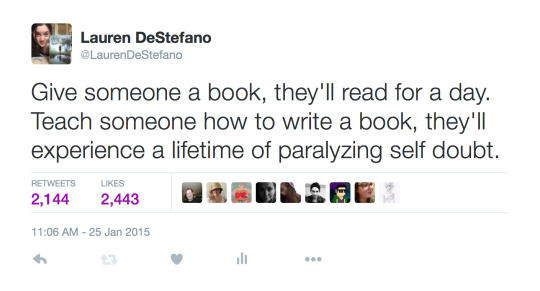Hi! My name is Stephanie, and I'm a freelance editor. I'm currently working on the first draft of a fantasy novel, which you can learn more about here.
Don't wanna be here? Send us removal request.
Photo

Religion is a massive part of your World Building. Like Religion in our own world, Religion in fictional worlds are controversial, varied and are a huge part of our society. Put simply; your world is dependent on the complexity of your Religion to indicate how your people act, what their morals are and basically how they live. Interconnectivity is a big part of World Building, and Religion is connected to everything in this case. So when crafting a religion, you have to take into account the territory you beliefs hold, the amount of time it has been around, the economy, political influences and geography of your land. From those small building blocks, you can craft a religion which is complex and something that could be unique to your world.
The Basics of Crafting a Religion
To start yourself off in building your Religion you need to ask yourself the following questions, and your Religion must answer them:
- Where do we go when we die?
- How was life created?
- What morals should your people live by?
These questions are the basics of crafting your Religion and by answering these provide your world with a basic feeling of spirituality that is important for civilizations. However, no all these questions have to be answered for you to form a religion. Maybe only one or two questions are answered. This gives your religion unique qualities and if you have many religions in your world a variety.
Variation on Religion
In order for your Religion to seem realistic in your world, you must provide a variation in beliefs and reasons behind such an occurrence. If your Religion is the most dominant one on a continent, you have to consider how it became that way. One way a particular belief becomes popular is through absorbing other smaller religions. They take their gods or moral rules and change them to fit their narrative. This would definitely create different beliefs and interpretations inside your Religion.
The way your Religion can also become popular is that it should have gain and loss element to it. How much does a worshiper gain from following that Religion and how much do they lose. By deciding that your then can determine how realistic the popularity our Religion would be.
There are other factors that must be considered when creating a religion which how much territory or land your Religion dominates or is in, the number of followers and the age of it. If your Religion has more territory, followers and is quite an old variation and different interpretation will be inevitable. However, if your Religion is young and has a small following, they would be more agreement.
Interconnectivity
Like every element of world building religion is connected and effects everything in your fictional world. The complexity and uniqueness of your fictional Religion depends on how much it links to the different aspects of your society. If your Religion is very intertwined in the society from the economy to culture, you will then make a world that feels realistic in its depth and complexity. The way to do this is to consider a few different aspects in your society and ask yourself how your Religion would affect this societal structure.
To show the culture your Religion promotes is to show how the beliefs would affect people in day to day life. How does your Religion change their weekly routine? What kind of relationship do they have with the gods? Is it a sibling or a parental-like relationship?
You will also have to ask yourself how it would affect the economy. If your Religion has a heavy influence on the military, the most popular job would be a soldier, a lot of money would put into that industry. Which leads nicely into the effects Religion has on politics. This depends on the type of Religion as there are different influences they would have. If your Religion is monotheistic, you would have more centralized power. With a more united front, your monotheistic Religion would have a lot of influences over politics often deciding your leaders. However, if your Religion is polytheistic, it would definitely would not have centralized power as you would different factions for each aspect of your Religion therefore not having a united front. This concept would cause less power of the political landscape.
Another aspect you would have to consider is the geography of your world. For example, if your civilization rely on a large river to survive you people would naturally worship the river and may even have a river god!
Extra Notes
Hey everyone! Hope this was helpful. Send me any suggestions for Friday!
3K notes
·
View notes
Text
it amazes me how people still think fiction doesn’t affect reality when about 90% of us ran like naruto without a second thought just because we saw him do it and thought it was cool
89K notes
·
View notes
Text
for a writeblr, i sure do barely write anything
845 notes
·
View notes
Text
A few short playlists with oddly specific vibes
You’re in a goofy chase scene and it’s the 60s
It’s the 80s and you and your crush are trying to convince yourselves and the world you’re straight. No one’s convinced
Someone you just met convinced you to go on a roadtrip with them because you have nothing to loose. But you can’t help but to think that something’s following you and the radio knows
You’re sitting in the window of your Chicago apartment situated right next to the train tracks. You listen to the blues as the trains pass
809 notes
·
View notes
Text
I’m about to lay down the best writing advice y’all’ve ever heard:
sometimes people just won’t like your work, and that’s okay. it doesn’t mean your work sucks, it doesn’t mean you suck, and it doesn’t mean they’re tasteless or a bad person for not liking something you made. sometimes people just don’t like things for whatever reason.
like, i don’t like American Gods. everyone likes this book, everyone i talked to liked it, my mom recommended it, and i couldn’t even finish it. i don’t think it’s a bad book or that Neil Gaiman is a bad writer, it just didn’t click with me. and that’s fine. and for everyone who doesn’t like what you write, someone will. ok? ok
3K notes
·
View notes
Photo

Forget “strong female character.” Aim for: “Woman or girl with agency.” One who makes decisions, affects the story, pushes the plot. –– Chuck Wendig
69K notes
·
View notes
Text
OK So pirates during the golden age had the “common chest,” which was a portion of each prize that went towards common goals: ship maintenance, etc.
It also went towards medicine and taking care of pirates who got injured, and compensation for those who lost limbs. Disabled pirates generally were accommodated on their ships, and not kicked off: there was one captain (whose name I forgot to write down but can look up if anyone’s interested) who couldn’t use his hands.
The point that i’m getting at here is
18th Century Pirates Had Universal Healthcare and Disability Benefits
Which the united states government, 300 years later, has yet to figure out.
2K notes
·
View notes
Text
A Few Tips All Writers Should Remember:
·Write to your comfort level. Meaning: give yourself a break when you need it and push yourself when you’re feeling motivated.
·Seek out sources of motivation. There are very few times when motivation hits me out of nowhere. Read a good book. Watch a good movie. Write down your goals.
·Find your space. Coffee shop. Library. Your room with the music blasting and the TV playing your favorite show. Find whatever gets you in the right headspace.
·Your first draft is just the first draft. Too many writers stress out about the first draft and they forget it’s just the first step in completing your novel. You can add to it, build from it, or toss it away completely.
·You will be rejected. Even if you write the next big hit, you’ll be rejected. Read the reviews for some of your favorite books—I guarantee someone HATED it. Not everyone will like your work, but that doesn’t mean it’s bad.
·Write advice isn’t for everyone. There’s no one-size-fits-all plan for writers. Pick and choose advice that works for you, ignore what doesn’t. Not everything will relate directly to you and your style of writing.
·It’s okay to stay in. Want a night to yourself so you can write? Don’t be afraid to cancel your plans and focus on your writing hobby. You don’t have to feel guilty about wanting to work on your writing.
·Let ideas settle. It’s tempting to jump right in to a new writing idea, but let things settle for a bit. Brainstorm. See what comes next. An idea needs to have legs and it needs to take your story somewhere. Let it grow.
·Outlines aren’t set in stone. Be flexible with your outlines. Plan if you need to, but allow yourself to explore new ideas. Let your story go in an unexpected direction.
-Kris Noel
19K notes
·
View notes
Text
I hope all of your plot holes are resolved and your work in progress turns into a finished work *throws glitter at you*
18K notes
·
View notes
Text
Let’s Talk about Querying!
(And why I stopped querying my novel.)

As some of you know, I was querying Iron From Fire on and off from March through May, and I recently decided to quit, despite it being overall a good story written in what one editor described as ‘on par’ for the genre.
And I think it’s important to talk about the process I went through, because my ill preparation hurt my mental health a lot, and you all deserve to know how to avoid the same fate.
First, this is the general process of querying, in case anyone is unfamiliar:
You finish the manuscript. And I mean finish it. Beta rounds, line edits, formatting, the whole nine yards.
You write the query letter. This includes a blurb meant to draw the agent in, a paragraph with stats and the names of a couple contemporary books that resemble yours, and a short bio about your previous book-related experience.
You send the query letter to a bunch of agents. A positive request rate right now is somewhere around 6 or 7%, which means if you have a stellar manuscript then 7% of the agents you query will want to read more of it to see if they’re willing to represent you.
You receive a mixture of rejections and requests, with a lot of silence in between. Most rejections are form rejections so you have no idea why they didn’t like your manuscript. Some requests turn into delayed form rejections. Everything hurts.
You either get an agent who signs you or you decide to quit. If you have a book you think will sell and are having positive responses from agents, the general rule of thumb is to keep querying until you’ve sent a letter to every agent you’d be interested in working with. This can mean anywhere from 30 to 130 agents.
Putting the rest under the cut.
Keep reading for:
Why I quit.
The things I learned from querying.
What I would have done differently if I’d known better.
[While this has some rather personal mental health things, please feel free to reblog it so other writers can learn from my experience!]
Keep reading
882 notes
·
View notes
Text
the thing about people who are like “i don’t like tolkien that much, fantasy should move on and be better” is that i AGREE that fantasy has all the wrong holdovers from lotr. but when you ask those people what contemporary fantasy they think is better, they’ll say shit like name of the wind or game of thrones, and i do not relate to that…..at all?? or even, like, brandon sanderson, whose books i REALLY like. but if you’re still naming mostly white straight male authors, what is it about tolkien you wanted to leave behind exactly???
37K notes
·
View notes
Note
Hello! So, you don't know me and I do apologize for this intrusion, but I was wondering if you had any tips for a new Writeblr? Is there a template for an introduction? Who has a good blog to follow? Thank you and have a lovely day!
Oh gosh this has to be a Crowning Moment for people who blog about writing. An Anonymous has appeared and asked for advice holy heck oh gosh aaaaaa
It’s no worries! Hi there, welcome to Writerblr! Things are pretty easy to understand once you get the hang of it, you got this!
So first off, I HIGHLY recommend reading through @pens-swords-stuff‘s masterlist for new Writerblrs (which can be found here). I think most people follow it when they start out and it is a great foundation to build up from.
Next, in terms of introducing WIPs (works in progress), @incandescent-creativity made up a comic sans powerpoint game which seems to be Uber Popular, as well as a very fun way to present things you love! Look them up and go for it. Here are the ‘rules’ for it, if you’re that kind of person.
Both of the above blogs are very good to follow, they’re very supportive and friendly (although Undine - first one - is currently on hiatus). They reblog a lot of other peoples content, so you could watch them for anything that catches your eye. Then follow that blog. Voila. Your spectatorship grows.
(I would also suggest @writingmyselfintoanearlygrave partly because it was the first writing blog I followed and partially because mmmm good stuff man. Very supportive, very friendly, just a good time in general).
(Also, some people who have fantastic WIPs in my humble opinion are @kaatiba (literally all of them) @albatris (I love ATDAO but again, all of them), @timetravelingpigeon (what a URL, am I right? And what a way to deal with time travel) and @joyful-soul-collector (Alien Roommates is both touching and hilarious).
ON THAT NOTE, I want to encourage you to interact with writers as much as possible. Seriously. Most people on here are unbelievably friendly. Reblog their content, add something you liked about it, get excited in the tags, it honestly makes peoples day. Reaching out and messaging them or leaving an ask (on anonymous or off, whichever you prefer, but I would suggest off because people go ‘oh hey this person has sent me an ask before’ and ~interactions happen~) also makes most people smile. And if they’re snippy - well, they’re not really worth your time, are they?
Next, remember: TAGS ARE YOU FRIEND. #writerblr and #writing are both good. Undine has a nice advice list again, found here. Tag your work. It is worth it. Things may be a little slow to get going at first, but bear with it. You’ve got this.
Finally, have a good time my dude. I’m a Writerblr, sure, but there’s no Strict Way To Be A Writerblr. Do you talk about writing? Then good job, you’re a writerblr. Do whatever you enjoy, as long as it doesn’t harm other people. Reblog that content from that game you like. Rant about something dumb that happened today. Share only pictures of pasta for a week, it’s your blog, run it how you want!
I hope you have a fantastic day. If you have any more questions, feel free to drop by again, or ask literally anyone I tagged (although, as said, Undine is on hiatus and uhhhh Logan (albatris) is very slow to reply at times, give them time). They’re all friendly.
61 notes
·
View notes
Text
What people think writing is like: careful planning and thought out plotlines
What writing is actually like: being possessed by an idea that you are constantly arguing with
123K notes
·
View notes
Text
Quick And Dirty Tips For Creating Subplots
– Not everyone should love the hero.
– The more antagonists you have the more conflicts you create.
– Real life should happen to the characters, even if they are saving the world they have jobs and responsibilities.
– Give the character interests and friends outside of work.
– Multiple point of views aren’t a bad thing if you know how to juggle them.
– It all needs to come together at the end.
– Not every antagonist needs to be vanquished at the end.
– – Give us more than one character to love– (from Diantha)
— Make each and every character count — (from Diantha)
Stories need subplots. Make sure yours has one.
39K notes
·
View notes
Note
How do you 'slow down the pace' before and after major action without boring the reader? (I'm sorry for my bad english but I do really enjoy your blog. Thank you!)
Hi! Thanks for writing, and your English seems totally fine to me!
Slowing Down the Pace of Your Story Without Boring Your Reader
Firstly, I think that due to Hollywood movies we’re all a bit brainwashed that a novel needs to be a fast-paced nonstop action ride… or we risk boring the ever loving fuck out of our readers. But here’s the truth:
What holds a reader’s attention is not constant action but doubt and unanswered questions.
Let me repeat that.
Suspense is not about action (”something’s happening!”), it’s about doubt (”what’s going to happen?”).
So, how do you keep your readers from getting bored when your story’s pace slows down? Make them uncertain. Give them something to wonder about. Foreshadow the next major plot point. Sow the seeds of doubt. If you sprinkle in enough “clues,” readers will stay engaged even when the pace slows down because they don’t want to miss any important information.
Also, you can show that although the pace may be slowed, your characters are not out of the woods. Use interior thought and emotion to reveal that even if things seem fine right now, your protagonist has concerns about the future.
If done well, these “slow” times can actually be very engaging to a sensitive reader who knows (because you’re guiding them toward this belief) that things can’t stay like this forever.
Thanks for your question and hope this helps!
800 notes
·
View notes










